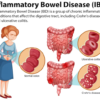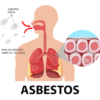Understanding Colorectal Cancer and the Role of Ayurveda in Its Management
Understanding Colorectal Cancer and the Role of Ayurveda in Its Management is a significant global health concern, being one of the most prevalent forms of cancer worldwide. With increasing incidence rates, particularly in developed nations, understanding the underlying causes and exploring holistic treatment options is essential. While conventional medicine focuses on surgery, chemotherapy, and radiation, Ayurveda offers a unique approach to cancer care, emphasizing the balance of mind, body, and spirit. This blog delves into colorectal cancer, its causes, symptoms, conventional treatments, and how Ayurveda can play a supportive role in management.
What is Colorectal Cancer?

Understanding Colorectal Cancer and the Role of Ayurveda in Its Management refers to cancer that develops in the colon or rectum. It typically begins as a growth on the inner lining of the colon or rectum, known as a polyp. While not all polyps become cancerous, certain types can lead to cancer over time. Colorectal cancer can affect anyone but is more common in individuals over 50, those with a family history of the disease, and people with certain genetic syndromes.
Causes and Risk Factors
The exact causes of colorectal cancer are not fully understood, but several risk factors have been identified:
- Age: Most cases occur in people over 50.
- Family History: A family history of CRC can increase risk.
- Diet: High consumption of red or processed meats, and low fiber intake may contribute.
- Lifestyle: Sedentary lifestyle, obesity, smoking, and excessive alcohol consumption are significant risk factors.
- Inflammatory Conditions: Conditions like ulcerative colitis or Crohn’s disease increase the risk.
- Genetic Syndromes: Certain hereditary conditions, such as Lynch syndrome and familial adenomatous polyposis (FAP), heighten susceptibility.
Symptoms
Symptoms of colorectal cancer can vary but may include:
- Changes in bowel habits (diarrhea, constipation, or a change in stool consistency)
- Blood in the stool or rectal bleeding
- Unexplained weight loss
- Fatigue
- Abdominal discomfort or cramps
It’s crucial to consult a healthcare provider if these symptoms arise, as early detection significantly improves outcomes.
Conventional Treatment Options
Conventional treatment for colorectal cancer typically involves a combination of surgery, chemotherapy, and radiation. The treatment plan often depends on the cancer stage, location, and the patient’s overall health.
- Surgery: Removal of the tumor and surrounding tissue is often the first line of treatment.
- Chemotherapy: Medications are used to kill cancer cells or stop their growth. This can be administered before surgery (neoadjuvant) or after (adjuvant).
- Radiation Therapy: Often used in conjunction with surgery, radiation can help shrink tumors or eliminate remaining cancer cells.
While these treatments are effective, they can also cause significant side effects, leading many patients to seek complementary therapies for support.
The Role of Ayurveda in Cancer Care
Ayurveda is a holistic healing system that originated in India over 3,000 years ago. It emphasizes the balance of the body’s energies, known as doshas (Vata, Pitta, and Kapha), and considers each individual’s unique constitution. In Ayurveda, health is viewed as a state of balance, and disease arises when this balance is disrupted.
Ayurvedic Principles in Cancer Care
- Individualized Treatment: Ayurveda recognizes that each person is unique. Treatment plans are tailored to the individual’s constitution, lifestyle, and emotional health.
- Diet and Nutrition: Ayurveda places great emphasis on a balanced diet. Foods are categorized according to their qualities and effects on the body. A diet rich in fruits, vegetables, whole grains, and healthy fats can help support the body during cancer treatment.
- Detoxification: Known as Panchakarma, Ayurvedic detoxification therapies help eliminate toxins from the body, which can support overall health and enhance the efficacy of conventional treatments.
- Herbal Remedies: Certain herbs in Ayurveda have shown promise in supporting cancer care. These include:
- Turmeric (Curcuma longa): Contains curcumin, which has anti-inflammatory and antioxidant properties.
- Ashwagandha (Withania somnifera): An adaptogen that helps reduce stress and supports the immune system.
- Brahmi (Bacopa monnieri): Known for its cognitive benefits and ability to reduce anxiety.
- Ginger (Zingiber officinale): Helps alleviate nausea and supports digestive health.
- Mind-Body Connection: Ayurveda emphasizes the importance of mental well-being. Practices like meditation, yoga, and breathing exercises (pranayama) are integral to reducing stress and improving quality of life.
Supporting Conventional Treatment
Integrating Ayurveda with conventional treatment can enhance overall well-being and help manage side effects. Here’s how:
- Managing Side Effects: Ayurvedic herbs can alleviate common side effects of chemotherapy, such as nausea, fatigue, and loss of appetite.
- Boosting Immunity: Ayurvedic principles focus on strengthening the immune system, which is vital during cancer treatment.
- Improving Quality of Life: The holistic approach of Ayurveda addresses emotional and psychological well-being, which is crucial for cancer patients.
Consultation and Collaboration
It’s essential for patients to communicate openly with their healthcare providers about their interest in Ayurvedic therapies. Collaborating with qualified Ayurvedic practitioners can help ensure that complementary therapies do not interfere with conventional treatments.
Lifestyle Modifications for Prevention
While Ayurveda provides various supportive therapies, lifestyle modifications play a crucial role in preventing colorectal cancer:
- Balanced Diet: Incorporate a variety of whole foods, including fruits, vegetables, whole grains, and lean proteins. Limit red and processed meats.
- Regular Exercise: Aim for at least 150 minutes of moderate exercise per week to maintain a healthy weight and improve overall health.
- Limit Alcohol: Reduce alcohol consumption, as excessive intake is a known risk factor.
- Avoid Tobacco: Quitting smoking and avoiding tobacco in all forms can significantly reduce cancer risk.
- Regular Screenings: Follow recommended screening guidelines based on age and risk factors to catch any abnormalities early.
Conclusion
Understanding Colorectal Cancer and the Role of Ayurveda in Its Management is a complex disease that requires a multifaceted approach to treatment and care. While conventional methods are essential for managing the disease, Ayurveda offers valuable complementary strategies that focus on holistic health and well-being. By addressing physical, emotional, and spiritual aspects, Ayurveda can enhance the quality of life for those facing colorectal cancer.
Incorporating Ayurvedic principles into daily life, alongside conventional treatments, can foster resilience and support recovery. Always consult healthcare providers before making any changes to treatment plans, ensuring a safe and integrated approach to cancer care. With awareness, education, and holistic support, individuals can navigate the challenges of colorectal cancer more effectively, fostering hope and healing along the way.








Leave a reply